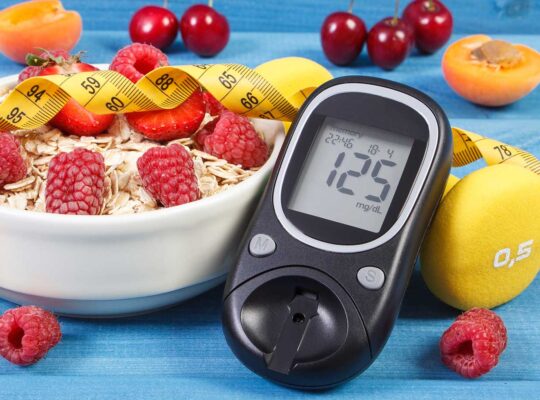In today’s busy world, heart disease is still a major health problem. Even with all the medical advances, it affects millions of people around the world. But there’s some good news—by making a few simple changes to your lifestyle, you can lower your risk of heart disease and live a healthier life. This blog post will guide you through ten easy changes you can make to protect your heart. Whether you’re someone who cares about your health, loves fitness, or just wants to avoid heart disease, these tips can help make a big difference.
The Heart of the Matter
Heart disease, often called the “silent killer,” affects millions of people worldwide. The statistics are shocking, showing why it’s so important to take steps to protect your heart. From heart attacks to strokes, the effects can be life-changing. But the good news is that we have the power to prevent these problems. By understanding how common heart disease is and realizing the need to prevent it, we can take steps to keep our hearts healthy.
Preventing heart disease doesn’t mean you have to make huge changes overnight. It’s about making small, manageable changes in your daily life. These changes are easy to do and very effective at lowering the risk factors that can lead to heart disease. By focusing on eating well, staying active, and managing stress, you can create a healthier heart and a brighter future.
01.Adopt a Heart-Healthy Diet
The first step to a healthy heart is eating a nutritious diet. By focusing on a heart-healthy diet, you can lower your risk of heart disease. Start by filling your plate with colorful fruits, vegetables, and whole grains. These foods are packed with antioxidants, fiber, and essential vitamins that support heart health and overall well-being.
When planning your meals, try to limit saturated fats and sodium. These can lead to high cholesterol and high blood pressure, which are hard on the heart. Instead, choose lean proteins like fish, chicken, and beans, and include healthy fats like olive oil and avocados. These choices help keep your cholesterol levels in check and support your heart.
Making these dietary changes doesn’t mean your food has to be boring. Try using herbs and spices instead of salt, choosing whole grains instead of refined ones, and exploring plant-based protein options. Small changes can make a big difference in your heart health. Remember, eating for your heart isn’t a diet—it’s a tasty way to improve your overall health.
02.Increase Physical Activity
Regular exercise is one of the best ways to fight heart disease. Just 150 minutes of moderate exercise each week can make a big difference for your heart. Whether it’s walking, cycling, or dancing, finding activities you enjoy will help you stay active.
Different types of exercise help your heart in different ways. Aerobic exercises improve circulation, strength training builds muscle and boosts metabolism, and flexibility exercises like yoga can help you relax and reduce stress. By mixing up your workouts, you give your heart a full range of benefits.
Being more active doesn’t have to be hard. Take the stairs instead of the elevator, park farther away, and take short walks during breaks. Every little bit helps keep your heart strong. Remember, the goal is progress, not perfection.
03.Maintain a Healthy Weight
Keeping a healthy weight is crucial for reducing your risk of heart disease. Tracking your body mass index (BMI) and waist size can give you a good idea of your overall health. Extra weight puts more strain on your heart, increasing the chance of heart problems.
To reach and keep a healthy weight, focus on balanced eating and regular exercise. Pay attention to portion sizes, eat mindfully, and choose foods that are good for you. Avoid crash diets—they often don’t last and can be bad for your heart. Slow and steady changes lead to lasting results, supporting both your heart and overall health.
Remember, your weight doesn’t define who you are. The goal is better health and a lower risk of heart disease, not reaching a specific number on the scale. By focusing on gradual, sustainable changes, you take care of your body and help your heart stay strong.
04.Quit Smoking
Smoking is a major cause of heart disease, but the benefits of quitting start almost immediately. Just days after quitting, your blood pressure stabilizes, and your circulation improves. Over time, your risk of heart disease drops significantly, allowing your heart to heal and work better.
Quitting smoking is hard, but it’s worth it. Get support from healthcare professionals, friends, and family. Use tools like nicotine patches or counseling to make it easier. Every step toward quitting is a step toward a healthier heart and a brighter future.
It takes determination and perseverance to quit smoking. Celebrate every small victory, and stay focused on the positive changes you’re making for your heart and your overall health. Your heart deserves a smoke-free life.
05.Limit Alcohol Consumption
While some studies suggest that moderate drinking might be good for your heart, too much alcohol is definitely harmful. To protect your heart, stick to the guidelines—up to one drink per day for women and up to two for men.
Too much alcohol can raise your blood pressure, cause irregular heartbeats, and damage your heart. It’s important to enjoy alcohol in moderation. If you’re unsure about how much you’re drinking, talk to a healthcare professional for advice.
Remember, you don’t have to give up alcohol entirely to live a heart-healthy life. Just focus on drinking responsibly. By making smart choices, you can protect your heart while still enjoying life.
06.Manage Stress
Chronic stress is tough on both your mind and body, including your heart. Long-term stress can raise your blood pressure, increase inflammation, and lead to heart disease. Learning how to manage stress is key to protecting your heart.
Add stress-reducing activities to your daily routine. Try meditation, deep breathing exercises, or yoga to calm your mind and body. Spending time with loved ones, enjoying hobbies, and taking care of yourself also help reduce stress.
Don’t be afraid to ask for help if you need it. Talk to a mental health professional or join a stress management program. By tackling stress head-on, you can live a heart-healthy life full of balance and resilience.
07.Prioritize Quality Sleep
Good sleep is essential for a healthy heart. Aim for 7-9 hours of sleep each night to give your body and mind the rest they need. Not getting enough sleep can raise your blood pressure, cause inflammation, and lead to weight gain, all of which increase your risk of heart disease.
Improve your sleep habits by sticking to a regular sleep schedule, creating a comfy sleep environment, and cutting back on screen time before bed. Wind down before bed with relaxing activities like reading or listening to calming music.
Making sleep a priority is a form of self-care that benefits your heart. By getting enough rest, you give your heart the support it needs to keep you healthy.
08.Monitor and Control Blood Pressure
High blood pressure is a major risk factor for heart disease. Keeping track of your blood pressure and working to keep it in a healthy range is important for your heart. Know your numbers and work with your healthcare provider to create a plan for managing your blood pressure.
Lifestyle changes can play a big part in controlling blood pressure. Eat a heart-healthy diet, stay active, and manage stress. These changes reduce the strain on your heart and help it stay strong.
Regular check-ups with your healthcare provider are key to staying on top of your blood pressure and making adjustments as needed. With dedication and commitment, you can keep your blood pressure in check and protect your heart.
09.Keep Cholesterol Levels in Check
Cholesterol, a fatty substance in your blood, is important for heart health. Knowing the difference between “good” (HDL) and “bad” (LDL) cholesterol is crucial for lowering your risk of heart disease. High LDL cholesterol can lead to plaque buildup in your arteries, raising the risk of heart disease.
To manage cholesterol, focus on diet and lifestyle. Eat foods rich in fiber, like oats, beans, and fruits, to lower LDL cholesterol. Include healthy fats from avocados and nuts to boost HDL cholesterol. Regular exercise and keeping a healthy weight also help maintain good cholesterol levels.
Routine cholesterol screenings are important for tracking your progress and adjusting your plan if needed. By keeping your cholesterol levels in check, you help your heart stay strong and ready for life’s adventures.
10.Regular Health Check-ups
Regular check-ups are key to keeping your heart healthy. These visits let your healthcare provider assess your risk factors, monitor your progress, and give personalized advice for maintaining a healthy heart.
Important screenings for heart health include blood pressure checks, cholesterol tests, and blood sugar assessments. By staying informed about your heart health, you can make smart decisions and take steps to prevent problems.
Remember, your healthcare provider is your partner in heart health. Don’t hesitate to ask questions, seek advice, and keep the lines of communication open. Together, you can work toward a heart that’s strong, vibrant, and full of life.
Conclusion
By making these ten simple lifestyle changes, you take big steps toward lowering your risk of heart disease and keeping your heart healthy. Remember, change doesn’t happen overnight. Start with one or two changes, and gradually build a heart-healthy lifestyle that works for you.
Talk to your healthcare provider before making any major changes to your routine. They can give you advice tailored to your needs. Share this article with friends and family, and invite them to join you on the path to heart health. Together, we can create a community that values and protects our hearts.
Frequently Asked Questions (FAQs)
What is the most effective way to lower blood pressure?
Adopting a heart-healthy diet, getting regular exercise, managing stress, and maintaining a healthy weight are the best ways to lower blood pressure.
How often should I have cholesterol screenings?
It’s recommended to have cholesterol screenings every four to six years, depending on your risk factors. Your healthcare provider can give you a personalized schedule.
**How often should I have cholesterol screenings?
It’s recommended to have cholesterol screenings at least every four to six years, depending on your risk factors. Your healthcare provider can offer a personalized schedule.
Can lifestyle changes really prevent heart disease?
Yes, lifestyle changes like improving your diet, increasing physical activity, and managing stress can greatly reduce your risk of heart disease.
What role does sleep play in heart health?
Quality sleep is crucial for overall health, including heart health. Poor sleep can lead to multiple risk factors for heart disease, such as high blood pressure and weight gain.
Why should I engage with my healthcare provider about heart health?
Regular communication with your healthcare provider allows for personalized advice, early detection of issues, and strategies to maintain or improve your heart health.

















